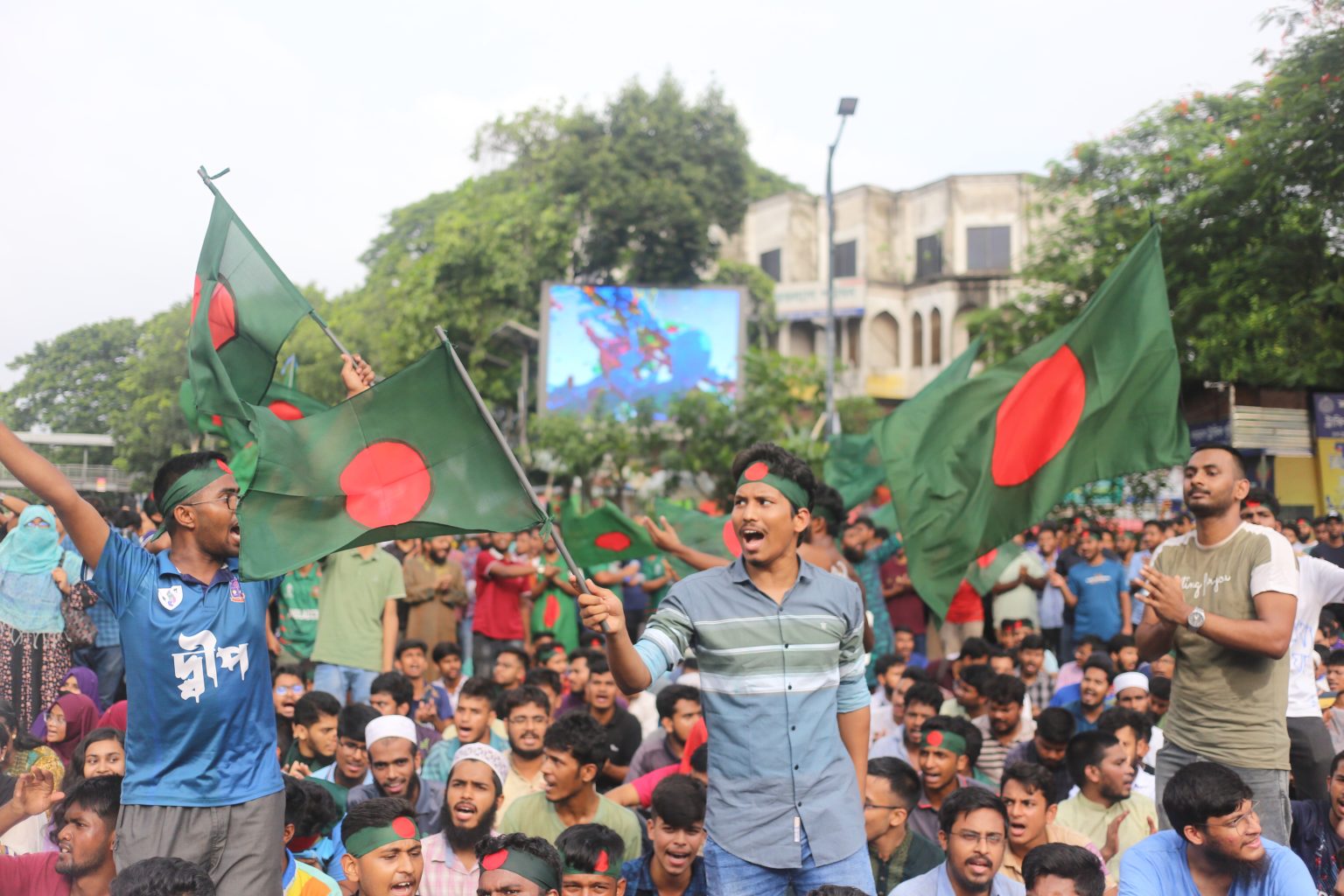Despite the government’s issuance of a circular on July 23, 2024, reforming the quota system in public recruitment, leaders of the student-led anti-discrimination movement remain firm in their four-point demand. The circular, issued amid massive protests, allocates 93% of government jobs based on merit and 7% for various quotas — 5% for freedom fighters’ descendants, and 1% each for ethnic minorities, persons with disabilities, and third-gender individuals.
While the reform addresses a key issue, movement leaders said it’s not enough. At a press conference held at Dhaka Reporters’ Unity, coordinator Sarjis Alam reiterated their core demand: full restoration of internet access, withdrawal of the curfew, removal of law enforcement from campuses, and reopening of residential halls. They gave a 48-hour ultimatum to the government, saying meeting these conditions would open the door for dialogue on their broader 8-point demand.
Tragically, three student leaders — Asif Mahmud Shojib Bhuyain, Abu Baker Mojumdar, and Rifat Rashid — have been missing since July 18. Asif’s father, Md Billal Hossain, spoke at the press conference, claiming his son was forcibly disappeared. “I searched every hospital. My son is missing — and we fear the worst,” he said.
Meanwhile, another faction of the movement announced symbolic protests across the country, wearing black cloths over their mouths and calling for former Prime Minister Sheikh Hasina to publicly apologize for the deaths during the protests.
Though broadband internet was partially restored in Dhaka and Chattogram late on July 23, the nationwide curfew entered its fourth day. Over 3,000 people had been arrested since July 17, with over 1,100 detained between the night of July 22 and the afternoon of July 23 alone. In Dhaka, 38 new cases were filed on July 23 in connection with violence linked to the movement.
Law enforcement continued combing operations, while the RAB chief warned of stern action against anyone accused of “subversive activities.” However, then-Law Minister Anisul Huq promised that false accusations against students would be reviewed based on evidence from movement leaders.
The government slightly eased curfew measures, allowing offices to open for four hours on July 24. Oil-carrying trains resumed operation, and factories were allowed to reopen to stabilize the economy.
In a significant statement on the same day, Nobel laureate and interim Chief Adviser Prof Muhammad Yunus urged the UN and international leaders to speak out against violence targeting protesters. Media groups including the Sampadak Parishad and NOAB also called for independent investigations into the deaths and destruction during the unrest.


